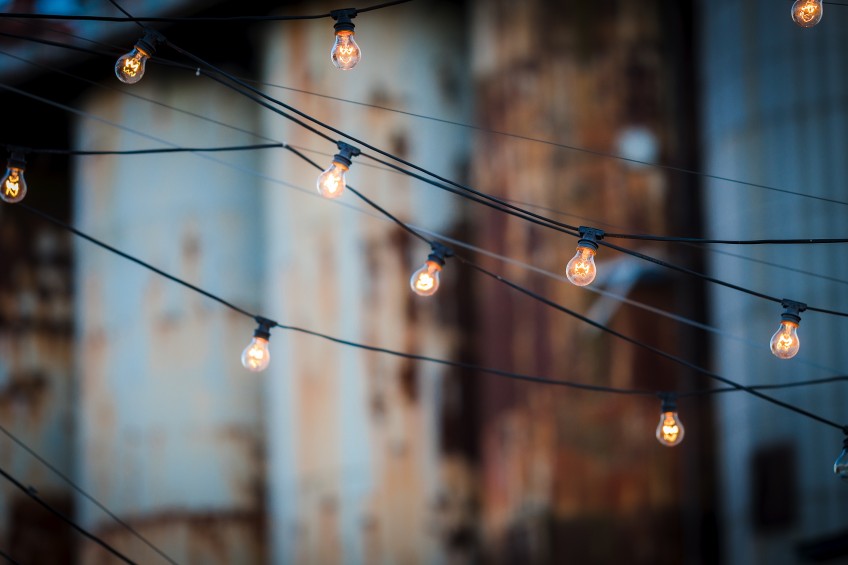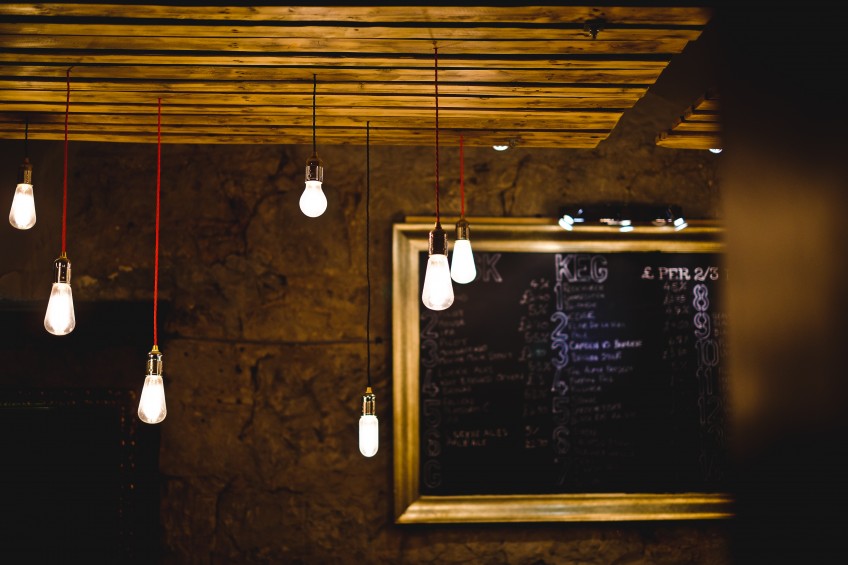Introduction
What homeowner hasn’t dreamed about a sweet outdoor kitchen at some point? Stop dreaming and start planning with this list of 5 questions to plan your build!
Step by step
Here in Texas where Propsee is based, outdoor kitchens are all the rage. Smokers, wet bars, TVs, and misting systems are all fair game when we’re bringing the party outside. All this can lead to a significant investment so it’s wise to think through a few questions in planning your investment.
- Why do you want an outdoor kitchen?
Some people think that added an outdoor kitchen will significantly add to the value of their home. Unfortunately, like many luxury features (pool, steam shower, etc.) you will rarely recoup the initial investment for a higher end setup.
Adding a kitchen should be something that you do because you want to use it yourself and are ok with perhaps not recouping the full cost when you go to sell the home. It is likely best to only do a nicer setup if you only plan to be in the home for a few years. Of course, we also recommend that as with any depreciating asset, you only pay cash rather than use home equity or other debt.
Also, be honest with yourself about how often the kitchen will be used. If you have a grill now and never use it, chances are you won’t change your habits just because you have a more expensive grill. Similarly, if you rarely entertain but plan to put in an 8-person bar with 6 beers on tap, you are likely pursuing an unrealistic goal and will be disappointed with how much your kitchen is actually used. This leads us to our next question…. - Who will use it?
Do you have a large family that loves hanging by the pool all weekend? Are you a retired couple that typically only entertains 1-2 other couples at a time? Are there certain foods that you love (smoked meats, wood fired pizza, steaks, etc.)? All of these things are important questions to consider when planning the size and features of your outdoor kitchen.
Similar to why you want a kitchen, be realistic about who will use it. If your spouse is a vegetarian and plans to host PETA parties in the backyard, your smoker might not get enough use to warrant a full built in affair. If you think you’ll have that one big company picnic each year with 50 people in attendance, that’s a great thought but might not be worth sizing everything for that scale of party (people will still like you if they have to sit in a folding chair, we promise).
Use the 80/20 rule here. Chances are you’ll find that 80% of the time you use 20% of the features. Rather than building out everything, focus on the sizing and equipment that you will use most of the time. It will save your budget and make your space more enjoyable. - What is your budget?
Before we get in to features, we should talk budgets. Outdoor kitchens can range in cost from a few thousand to 6-figures. Rather than letting features dictate your budget, set an amount you are comfortable spending and then find out how to fit what you can afford within that number. As we said earlier, outdoor kitchens rarely recoup their full cost on the sale of your home so we don’t recommend using debt to finance this. Think of this more as a luxury and only spend what you’re willing to lose (like a vacation more than an investment). - What are the features you need and want?
You likely have a list of features that is longer than your budget will allow. If this is the case, break your list in to “Needs” and “Wants” and prioritize each with a numbering system. You can always go back and adjust later, but it will give you a starting point when you begin talking with contractors and shopping around.
Here’s some features to think about to get you started.
Covering, cooling, and heating
Here in Texas, nothing will ruin a party faster than sweltering heat. In other areas, it’s that unexpected rain shower than will dampen your spirits. You’ll likely want to put some sort of covering, whether it is a hard-top pavilion or open pergola, to cover the cooking and dining areas.
In a hot climate, you will also want to have some robust ceiling fans to keep the air moving in the afternoon. To really go above and beyond, consider a misting system to keep things cool.
Cooler climates can extend their grilling season by several months by putting in heaters. Of course, you could use portable units when needed, but mounted infrared heaters will make it even easier to stay warm on those cooling evenings.
Sink
A sink with a drain is important if you want to do any sort of food prep. Even if you plan to prep inside, having a sink outside will make cleaning up and washing dishes easier.
Lighting
If you’ve ever stood over a grill with a flashlight, you know the importance of good lighting. Plan a mix of lighting to match the space. Gathering areas will want to have softer general lighting while cooking and prep spaces need bright direct lighting.
Cooking
This is what it’s all about. A BBQ grill is a given, but you may want to consider a specialty features like a smoker or pizza oven if you enjoy that type of cooking as well. Other considerations would be a traditional cooktop, oven, wok burner, or deep fryer. Focus on the types of cooking you do most, and consider appliances that can server multiple functions (some pizza ovens make great smokers).
Within your cooking appliances, you’ll find a range of quality and price. Focus on getting the best quality you can for the appliances you’ll use most. Quality over quantity is almost always the better option.
Seating
If you plan to eat outside quite a bit, a spacious outdoor dining set is a must. In addition, think about having a bar area where you can serve drinks and converse with guests while you grill.
After dinner, you may want to have some areas for entertainment. Consider putting in some hammock chairs, porch swings, fire pit seating, or Adirondack chairs to give guests a great area to relax after your excellent cooking.
Refrigeration
Having a fridge is something you may be able to do without, but having one a small one under the counter is a nice feature. Even if you don’t store items here permanently, it is nice to have a place to put items as you prep/cook or store drinks.
Speaking of drinks, consider putting in a dedicated beverage cooler for wine, soda, beer, etc. It’s nice to be able to crack another cold one without having to leave the grill!
Entertainment
What fun is spending the afternoon cooking if you can’t watch the game? Having a TV and speakers in the outdoor kitchen will take your outdoor kitchen to the next level. Consider using a flip up or recessed mount to protect the TV from the elements when not in use. For speakers, be sure to use weather proof components throughout.
TV is nice, but for real conversation nothing beats a fire. Whether you opt to go for an open fire pit or a full stone fireplace, having a nice place to gather and talk late in to the night is what memories are made of.
- How will you complete the work?
If you are the DIY type, you might be able to stretch your budget by hiring contractors direct, rather than using a GC. Not using a GC will require you to be more on top of the permits, scheduling, bidding, etc. but will save you thousands over having a third party manage the contractors. Some states may require you use a GC, so check your local codes, but most will allow you to go direct to trade contractors as long as they have proper licensing and follow proper codes and permitting regulations.
If you want to actually complete some work yourself, we recommend you focus on items that aren’t permitted to lower the risk of a serious issue. Plumbing, electrical, and structural items are best left to the pro’s unless you have prior experience. You can still save by doing some items that won’t have as much risk if they go wrong like tile, concrete countertops, etc.
One last note, which we touched on above, is permits and codes. Don’t be tempted to complete this work “under the radar”. Unless you are just planning to build a pergola to cover your portable grill, you will likely run in to some items that require permits. Permits are there for your protection and can keep you from having costly or dangerous issues later. Use qualified contractors with proper licensing and insurance. If you don’t, your dream project may become a nightmare.
Conclusion
An outdoor kitchen can be a fun feature, but it is a considerable expense and should be thought of more as a luxury than an investment. Asking yourself the questions above will go a long way toward ensuring you build something that is right for you, your friends, your family, and your budget.



